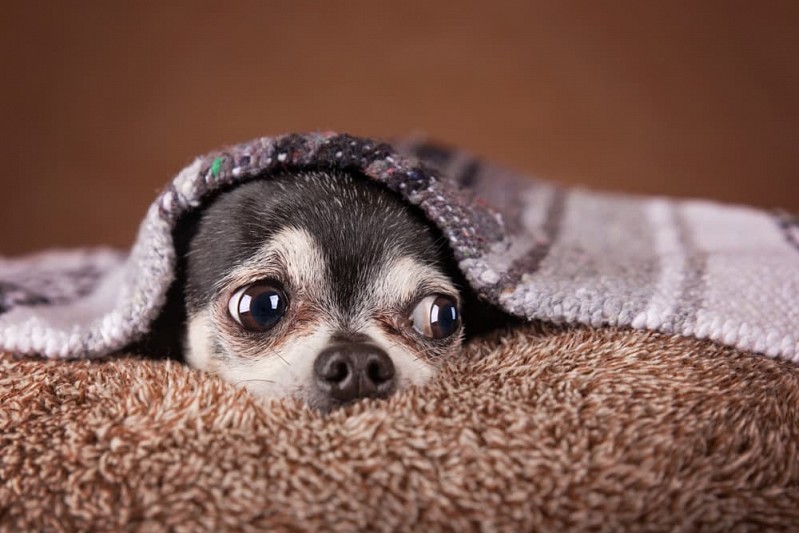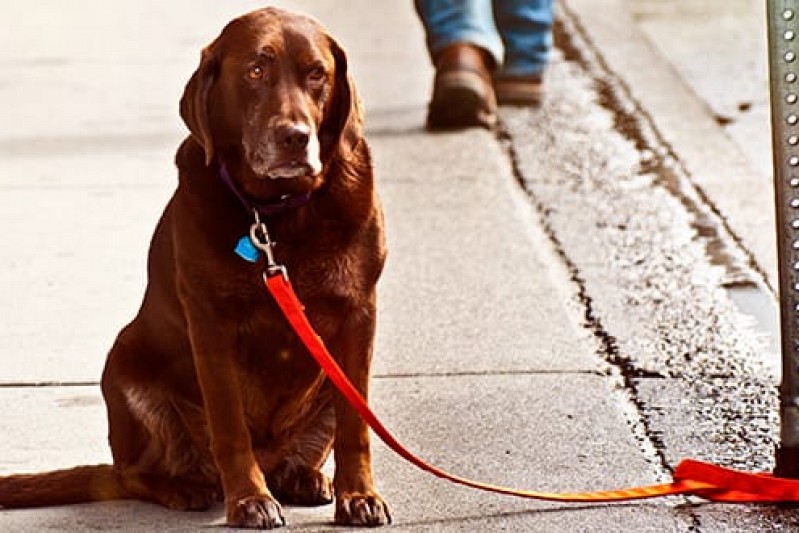
The novel coronavirus or COVID-19 has been on all of our minds
lately and has turned most of our lives upside down. As it is a new strain of a virus, there is
limited information and new things are being learned as new information comes
to light. The newest release from the CDC suggested our pets could be
susceptible to the virus and this is causing a lot of fear and anxiety among
pet owners and we need to address link between humans and pets and the risk of
our pets getting COVID-19. Here are some of the facts regarding our beloved
pets.
While the CDC does report it has seen a few cases of
covid-19 in pets, it also states:
- Some coronaviruses that infect animals can
sometimes be spread to humans and then spread between people, but this is rare.
- At this time, there is no evidence that animals
play a significant role in spreading the virus that causes COVID-19.
- Based on the limited information available to date, the risk of animals spreading COVID-19 to people is considered to be very low.
- The virus that causes COVID-19 spreads mainly from person to person through respiratory droplets from coughing, sneezing, and talking. Recent studies show that people who are infected but do not have symptoms likely also play a role in the spread of COVID-19. At this time, there is no evidence that animals play a significant role in spreading the virus that causes COVID-19.
The CDC as well as the AVMA states that there is still much
to learn about the virus. However, as you will see from the above, even with
the new information released, the chances of our pets spreading covid-19 or
becoming ill is “rare” and “considered to be low.” According to the AVMA article SARS-CoV-2
in animals “At the onset of the COVID-19 outbreak in Hong Kong, government
officials with the Agriculture, Fisheries and Conservation Department (AFCD)
recommended that mammalian pets, including dogs and cats, from households with
persons hospitalized because of COVID-19 should be cared for in quarantine and
tested for infection with SARS-CoV-2. As of April 15, 30 dogs, 17 cats, and 2
hamsters have been held at the AFCD quarantine facility. However, only two dogs
and one cat have tested positive for SARS-CoV-2. None of the animals in
quarantine, including the three positive animals, developed clinical signs of
respiratory disease, and at least six animals have been released from
quarantine, including both dogs that tested positive.”
As of this writing, there are currently 1.21 million
confirmed cases of covid-19 among humans in the United States, meaning the
ratio of human to animals is miniscule. If pets were as susceptible as humans,
those numbers would be much closer in relation to confirmed cases.
The article Serological
Prevalence Of Canine Respiratory Coronavirus refers to canine types of coronavirus
and pet immunology. “Canine respiratory coronavirus (CRCoV) has recently been
detected in dogs; it is a group 2 coronavirus showing similarity to bovine
coronavirus (BCoV) but is distinct from canine enteric coronavirus (CECoV).
CRCoV may play an important role in canine infectious respiratory disease
(CIRD) either by predisposing to further and potentially more serious viral and
bacterial infections or possibly as a primary pathogen. The prevalence of serum
antibodies to CRCoV, in a population of dogs in the south east of England, has
been shown previously to be 30.1% on the first day of entry to a rehoming
kennel. The purpose of this study was to establish the prevalence of CRCoV in
the general canine population within as well as outside the UK. An ELISA, used
to test for the presence of antibodies to CRCoV in canine serum samples,
identified seropositive dogs in UK, USA, Canada, Republic of Ireland and
Greece. The development of an ELISA based on CRCoV antigen and
immunofluorescence assay are described here. 54.7% (547/1000) of North American
and 36.0% (297/824) of United Kingdom dogs were seropositive for CRCoV. The age
and geographical distribution of seropositive dogs was also assessed. The
cross-reactivity demonstrated between CRCoV antibodies from different countries
and a UK viral isolate suggests immunological similarity.”
Social media rumors have claims circulating about a
coronavirus vaccine for pets for COVID-19 since 2001. However, this rumor is
false.
The article
Canine Coronavirus Disease by Rania Gollakner, BS, DVM, MPH and Ernest
Ward, DVM clearly state "Canine coronavirus (CCoV) is not the same virus
as SARS-CoV-2 that causes the novel coronavirus (COVID-19)."
“Canine coronavirus disease, known as CCoV, is a highly
infectious intestinal infection in dogs, especially puppies. Canine coronavirus
is usually short-lived but may cause considerable abdominal discomfort for a
few days in infected dogs. The virus is from the Coronaviridae family. The
virus gets its name from the fact that when viewed from above under an electron
microscope, the virus has a ring of projections that appear like a coronet, or
a small crown made of ornaments fixed on a metal ring. There are many types of
coronavirus, each affecting different animal species, including humans.”
"Canine coronavirus (CCoV) is not the same virus as
SARS-CoV-2 that causes the novel coronavirus (COVID-19). CCoV does not affect
people. CCoV causes gastrointestinal problems in dogs, as opposed to
respiratory disease."
"Canine coronavirus vaccines are available. This vaccine is
not recommended for all dogs and will be administered based on your dog's
lifestyle and risk assessment. This vaccine will only work for the CCoV type of
coronavirus. It is not effective for the prevention of COVID-19.”
Another assuring piece of information is virus have a much
shorter life span on porous surfaces, such as a pet's fur. Our pet's fur also has natural oils and chemicals
from medications, heartworm preventive and flea and tick treatment, making
their fur inhospitable to viruses.
World
Organization for Animal Health says, “Currently, there is no evidence that
animals are playing a significant epidemiological role in the spread of human
infections with SARS-CoV-2. However, because animals and people can sometimes
share diseases (known as zoonotic diseases), it is still recommended that
people who are suspected or confirmed to be infected with SARS-CoV-2 limit
contact with animals.”
Remember, covid-19 is passed through respiratory droplets
and salvia. There are ways to reduce the risk of spreading COVID-19, such as
- Wash your hands after you pet them, feed them,
or handle their waste.
- Limit your pet licking on your face
- If your pet licks you, wash that part of you
right away whether hands, arms
- Get rid of their poop, whether it's in the
house, yard, or another public spot.
- When your pet comes in from outside, wipe their
paws
- Clean their food and water bowls, bedding, and
toys regularly.
The CDC's Stay
Healthy Around Pets says,” Whether you are playing with, feeding, or cleaning
up after your pet, it is important to wash your hands to help reduce the risk
of getting sick from germs pets can carry.”
Always wash hands:
- After touching or playing with your pet
- After feeding your pet or handling pet food
- After handling pet habitats or equipment (cages,
tanks, toys, food and water dishes, etc.)
- After cleaning up after pets
- After leaving areas where animals live (coops,
barns, stalls, etc.), even if you did not touch an animal
- Before eating and drinking
- Before preparing food or drinks
- After removing soiled clothes or shoes
· Running water and soap are best for hand washing, but you can use hand sanitizer until running water and soap are available.
If you are utilizing a Professional Pet Care Specialist, please make sure they are using masks and gloves and sanitizing between visits or using disposable masks and changing between clients, only using your pet's personal leashes, collars and harnesses, they are washing hands or hand sanitizing between clients.
We
are making every effort to stay on top of all research and new information in
regards to covid-19 and our pets. Please continue to watch our page for any
updates.




















